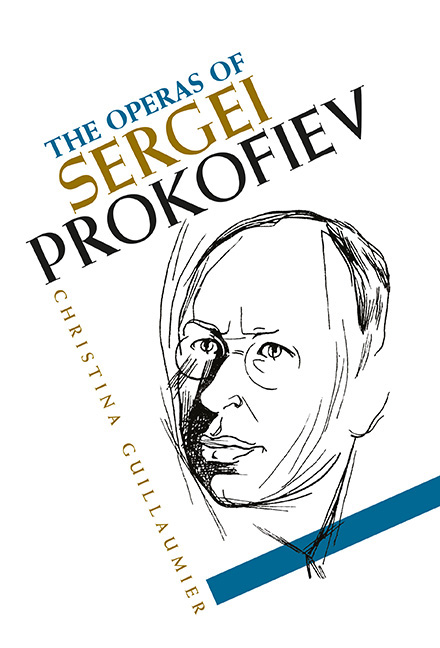Book contents
- Frontmatter
- Dedication
- Contents
- List of Illustrations
- Acknowledgements
- Note on transliteration, abbreviations and sources
- Introduction: Prokofiev and Opera
- 1 Early Operatic Experiments and Maddalena
- 2 Between Opera and Theatre: Radicalisation of Style in The Gambler
- 3 A Successful Enterprise: Love for Three Oranges
- 4 The Devil Within: Theatre and Spectacle in The Fiery Angel
- 5 Towards a Soviet Operatic Style: Semyon Kotko
- 6 Betrothal in a Monastery and the Retreat from Ideology
- 7 War and Peace: The Prokofievan Operatic Ideal?
- 8 Dramaturgical Re-evaluation in The Story of a Real Man
- Epilogue
- Synopses
- Bibliography
- Index
3 - A Successful Enterprise: Love for Three Oranges
Published online by Cambridge University Press: 28 April 2020
- Frontmatter
- Dedication
- Contents
- List of Illustrations
- Acknowledgements
- Note on transliteration, abbreviations and sources
- Introduction: Prokofiev and Opera
- 1 Early Operatic Experiments and Maddalena
- 2 Between Opera and Theatre: Radicalisation of Style in The Gambler
- 3 A Successful Enterprise: Love for Three Oranges
- 4 The Devil Within: Theatre and Spectacle in The Fiery Angel
- 5 Towards a Soviet Operatic Style: Semyon Kotko
- 6 Betrothal in a Monastery and the Retreat from Ideology
- 7 War and Peace: The Prokofievan Operatic Ideal?
- 8 Dramaturgical Re-evaluation in The Story of a Real Man
- Epilogue
- Synopses
- Bibliography
- Index
Summary
Prokofiev's Love for Three Oranges embraces and foregrounds theatre as an added dimension of the operatic stage, drawing our attention to the interdisciplinary nature of the composer's vision. As we have seen in the previous chapter, Prokofiev was fully aware of Russian trends in theatre, and continued to keep abreast of developments throughout his career. In this chapter, alongside an analysis of the opera, theatre director Vsevolod Meyerhold's philosophy is probed with two main aims: the first is to explore the extent of Meyerhold's influence on Prokofiev, and the second is to explore the extent to which the metaphor of the theatre clarifies how the composer worked with his musical materials; specific comparisons between Meyerhold's and Prokofiev's techniques will be made throughout the discussion.
Meyerhold's work aimed to challenge an audience's understanding of reality, delighting in presenting simultaneous paradoxes such as truth/imagination or reality/fiction with the aim of disputing a coherent understanding of the world around us. Meyerhold embraced the mystery of theatre and delighted in the curious audience member who delved deep into what the theatre left unsaid. He did not consider that theatre should hold up a mirror to life (‘Down with the theatre of the actor-gramophone!’), instead preferring to underline the coexistence of the real and the fictional; and in plundering theatrical practice from the past for ideas that resonated with his own, it is hardly surprising that the commedia dell’arte seemed particularly fit for purpose. Meyerhold wanted to reimagine the theatre as a deeply engaging experience for both the actor and the audience. It is therefore no coincidence that Prokofiev's music drew Meyerhold's attention. The theatre director had trained to become a professional musician before turning to his real passion: he understood musical process and product very well. It is also hardly surprising that Prokofiev found Meyerhold's ideas (not to mention his energy and entrepreneurship) a match for his own. They were kindred spirits.
Prokofiev too wanted to challenge audiences with his music, playing with their expectations. His music is full of surprising and incongruent events, whether this is in his idiosyncratic construction of melodic line, unexpected cadences, or approach to timbre and orchestration. Just as Meyerhold's theatre draws attention to its own process, so Prokofiev's music plays with formal structures, deconstructing them, playing with them and toying with forms and meters, preferring to debunk and draw attention to them.
- Type
- Chapter
- Information
- The Operas of Sergei Prokofiev , pp. 56 - 78Publisher: Boydell & BrewerPrint publication year: 2020
- 1
- Cited by



